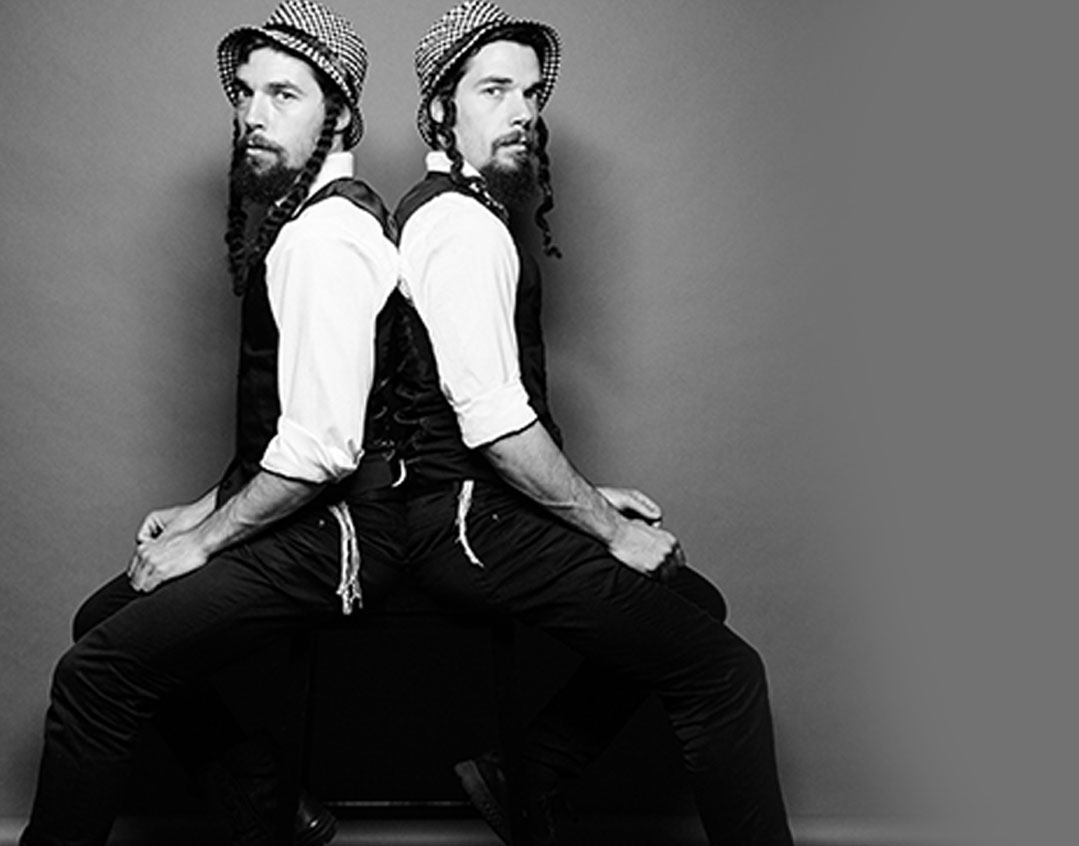Double Vision
| April 16, 2019
Juggling Act
Who: Yaakov and Yisrael Gourion
Where: Crown Heights, NY, and Monsey, NY
Occupation: “The Twins from France” performing duo
“W
e never knew what to answer when people asked what career we wanted,” says Yaakov Gourion, looking very serious. “The other kids in school wanted to be doctors or lawyers, so how could we say that we wanted to do circus tricks?”
Today, those circus tricks, which include blowing fire, juggling, and acrobatics, have made Yaakov and Yisrael Gourion into popular entertainers throughout the frum world. Known simply as “The Twins from France,” they perform at weddings, camps, and events, and in recent years have created several original videos.
“There are tricks that you just can’t do onstage or in the middle of a crowd, like car tricks, or the more spectacular fire tricks,” says Yisrael, “so we created the DVDs.”
The twins’ family, particularly their father, an acupuncturist in Marseille, France, noticed and encouraged their acrobatic talent when they were very young. “Our father would actually offer us extra allowance if we did more cartwheels, more tricks,” Yaakov says.
Yaakov and Yisrael were born after their parents were drawn closer to Yiddishkeit by the Chabad shaliach in Marseille, Rabbi Yosef Yitzchak (Fitche) Lapkowsky. When they were very young, their father went to ask his rav a question. Seeing him, the rabbi said, “Monsieur Gourion, I know what you are here to ask, and the answer is no. Do not separate your twin sons.”
Following this advice, Yaakov and Yisrael attended the same Jewish school in Marseille, constantly learning, playing, and fighting with each other, then moved on to Yeshiva Tomchei Temimim in Paris.
During those four yeshivah years, their talents began to blossom. According to the twins, this was because more conventional outlets were frowned on.
“The yeshivah in Paris was pretty strict,” Yisrael explains. “No soccer or basketball were allowed during recess. So, instead, we bought juggling balls and a unicycle and practiced in the hallways during recess.”
Zigzagging up and down those hallways and messing around with their juggling balls brought the boys’ skills to a point where they would put on small shows at family weddings.
When it was time for mesivta, Yaakov and Yisrael chose a small Chabad yeshivah in Bnei Brak.
“We flew abroad for the first time, together, and made our way from the airport to the yeshivah,” Yaakov reminisces. “The madrich welcomed us and explained that there was a wedding of an older bochur from the yeshivah, so everyone would be going out that night. He left us to rest up and unpack, but after a while we felt ready to go and find the other guys. On the streets, we used our accented Hebrew to ask passersby where the wedding hall was. People laughed at us — we had no idea that there must be 20 wedding halls in Bnei Brak.”
Yaakov laughs. “We made our way to the closest hall, and luckily, it was full of bochurim who looked vaguely familiar. Naturally, we said to each other, ‘Let’s do a few tricks.’ So that was our first performance in Israel. And people loved it.”
Oops! We could not locate your form.













